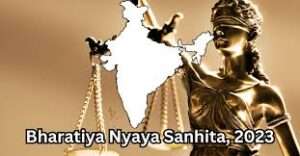
Uniform Civil Code in India:
A Uniform Civil Code (UCC) proposal seeks to establish a standardized set of laws applicable to all citizens of a nation, transcending religious and cultural boundaries. In the context of India, where diversity is both a strength and a challenge, the concept of a UCC has ignited debates, drawing comparisons to legal frameworks in other countries. This essay delves into the essence of the Uniform Civil Code in India, its comparison with global practices, and the role of specific legal provisions in shaping this discourse.
Embedded in Article 44 of the Directive Principles of State Policy in India’s Constitution, the UCC’s essence lies in promoting gender equality, individual rights, and a unified legal framework. Presently, India’s legal landscape is a mosaic of personal laws influenced by religious tenets. Distinct legal systems govern matters like marriage, divorce, and inheritance for different communities, which has led to disparities and questions of justice.
Embedded in Article 44 of the Directive Principles of State Policy in India’s Constitution, the concept of a Uniform Civil Code (UCC) seeks to bridge the gap between religious diversity and legal harmonization. The UCC aims to establish a comprehensive set of laws that apply uniformly to all citizens, regardless of their religious affiliations. The rationale behind the UCC lies in promoting gender equality, individual rights, and a cohesive legal framework that transcends religious and cultural boundaries.
India, often celebrated for its rich tapestry of cultures and faiths, presents a unique backdrop for discussions surrounding the UCC. With its diverse population adhering to various religious practices and traditions, the debate is often characterized by a delicate balance between respecting religious freedoms and ensuring equitable rights for all.
One of the primary motivations for a UCC is to address the inherent gender biases and inequalities that persist in personal laws governed by religious principles. In matters of marriage, divorce, inheritance, and adoption, varying legal standards have resulted in disparities that disproportionately affect women. Advocates of a UCC argue that a uniform set of laws would ensure equal rights and protection for women, eliminating discriminatory practices embedded within certain personal laws.
The status quo, with different religious communities governed by distinct legal systems, has led to a complex legal landscape. Critics of the UCC proposal highlight concerns related to potential infringement upon religious freedoms. They emphasize that personal laws often hold deep cultural and religious significance for communities and altering these laws could disrupt established social norms and practices.
The implementation of a UCC in India would require a nuanced approach that navigates these challenges. It would necessitate open dialogues, involving legal experts, scholars, religious leaders, and civil society members to ensure that the code respects diverse cultural and religious sensibilities while upholding the principles of justice and equality.
The constitutional provisions that underscore the debate over the UCC are not limited to Article 44. Article 25, which guarantees freedom of religion, intersects with the call for a UCC. Striking a balance between the rights of individuals and the preservation of cultural and religious identities is a formidable task. Furthermore, legal provisions such as the Indian Penal Code (IPC) and specific personal laws, like the Hindu Succession Act (HSA) and Muslim Personal Law, play a pivotal role in shaping the discourse.
In conclusion, the Uniform Civil Code debate in India encapsulates a multifaceted dialogue that hinges upon the principles of justice, equality, and cultural diversity. While the aspiration for a uniform legal framework is commendable, its realization necessitates a careful navigation of complexities rooted in India’s diverse cultural and religious fabric. As the nation strives to forge a path forward, the discourse surrounding the UCC serves as a reflection of India’s commitment to evolving its legal landscape while respecting its rich heritage.
Comparative Analysis:
- USA: The United States provides a fascinating juxtaposition. Its legal system, based on common law, comprises both federal and state laws. Though there is no national UCC, certain areas, such as marriage and divorce, fall under state jurisdiction. The diversity of laws across states demonstrates the coexistence of autonomy within a unified legal structure.
- China: China’s Civil Code illustrates successful implementation of a unified legal framework across a multi-ethnic and multi-religious society. The Code addresses marriage, family, property, contracts, and torts, reflecting China’s unique sociocultural dynamics.
- European Nations: European countries like France and Germany have established uniform legal codes, emphasizing individual rights and gender equality. Despite their harmonized legal systems, variations persist due to historical, cultural, and linguistic distinctions.
- France: France is often cited as an example of a country with a successful Uniform Civil Code. The Napoleonic Code, implemented in the early 19th century, abolished personal laws based on religion and established a single civil code for all citizens.
- Turkey: After its modernization in the 1920s, Turkey adopted a new civil code that replaced religious laws with a secular legal framework. This reform aimed to create a more equitable legal system.
- Tunisia: Tunisia has implemented a Uniform Personal Status Code that guarantees equal rights for men and women in matters of marriage, divorce, and inheritance.
- Egypt: Egypt introduced a family code in the 20th century that governs matters related to marriage, divorce, and inheritance. It aims to create a more egalitarian legal framework.
Role of Legal Provisions:
Specific legal provisions shape the discourse on a UCC:
- Indian Penal Code (IPC): Section 497 of the IPC, dealing with adultery, highlights gender biases embedded in personal laws. It treats a woman as the property of her husband, impacting notions of equality. Advocates of a UCC argue that this section perpetuates gender inequality and necessitates reform.
- Hindu Succession Act (HSA) and Muslim Personal Law: Disparities in inheritance laws are evident in the HSA and Muslim Personal Law. The HSA aims at gender equality in property rights, while Islamic inheritance laws allocate shares based on religious tenets. A UCC could address these inequities.
- Article 25 of the Constitution: While Article 25 guarantees religious freedom, it intersects with the call for a UCC. Critics argue that imposing a UCC could infringe upon religious rights, necessitating a delicate balance between uniformity and diversity.
Conclusion:
The debate surrounding the Uniform Civil Code in India is multifaceted, encapsulating the tension between individual rights and cultural-religious diversity. A comparative analysis with other countries underscores the intricate nature of legal reform. India’s historical, cultural, and religious diversity amplifies the complexity of this issue. A nuanced understanding of these dynamics, coupled with open dialogues, is essential to forging a path forward.
The synergy of legal provisions like the IPC, HSA, and Article 25 in India’s context underscores the need for thoughtful reform. Balancing the principles of justice, equality, and cultural plurality requires a calibrated approach that respects diverse beliefs while championing individual rights.
As India contemplates the contours of a Uniform Civil Code, the nation stands at a crossroads, where constitutional ideals intersect with cultural and religious diversity. The aspiration for a uniform legal framework is a testament to the evolving nature of society, and the path chosen will shape India’s legal legacy for generations to come.
Amidst the tapestry of diversity, a Uniform Civil Code weaves the threads of justice, equality, and unity, seeking to harmonize the symphony of personal laws with the melody of fundamental rights.”








